22 messages of hope (and science) for creationists
No sarcasm, no condemnation — just honest answers to 22 questions from creationists.
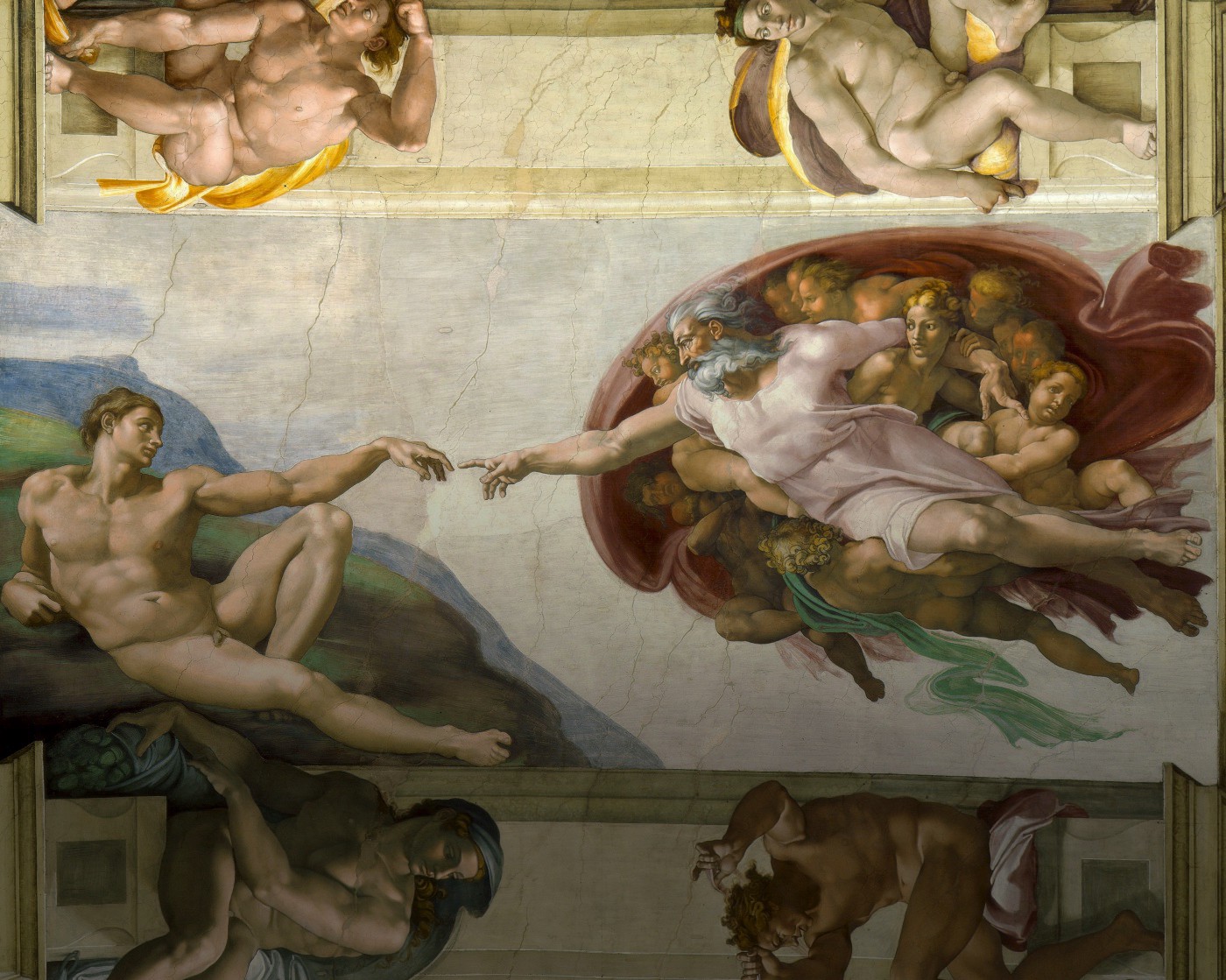
In science, it often happens that scientists say, “You know, your argument is very good; I was wrong, ”and then they actually change their minds and their old ideas are no longer heard from them. They actually do that. This does not happen as often as we would like, since scientists are people and sometimes change causes pain. But it happens daily. I do not remember when the last time something like this happened in politics or religion.
- Karl Sagan
Yesterday, the debate on evolution and creationism lasted two and a half hours. Today I discovered this post on Buzzfeed, which is referred to by all and sundry. Apparently, he mocks creationists by showing "stupid and arrogant" questions or messages that they address to people who believe in evolution.
But if you are only engaged in mocking people who disagree with you, you miss the chance to honestly discuss with them, find out where they are from, and possibly teach them something that they might not know. I am not a biologist; I am an astrophysicist, but when I saw these 22 posts, I thought about the large number of young people I met in life in schools, classes and educational situations. If these questions were addressed to me, what should I say?
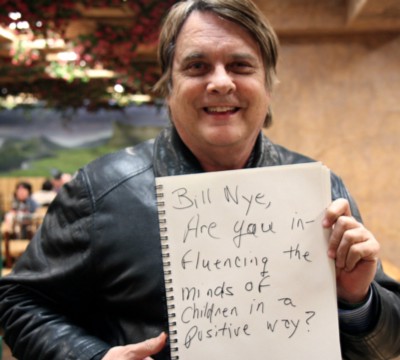
')
1) Do you influence the minds of children for the better?
There is always a temptation to demonize someone who does not share with you beliefs or future views. Christians blamed me myself for not being a Christian, atheists for insufficient atheism, Jews for not being a Jew enough, tough guys for botanism, outsiders for mainstream politics, and politicized individuals for political opinions different from their own. So, if you ask me (I confess that I am not Bill Nye), I always believed that no matter what a person says, you can always ask very powerful question: how do you know?
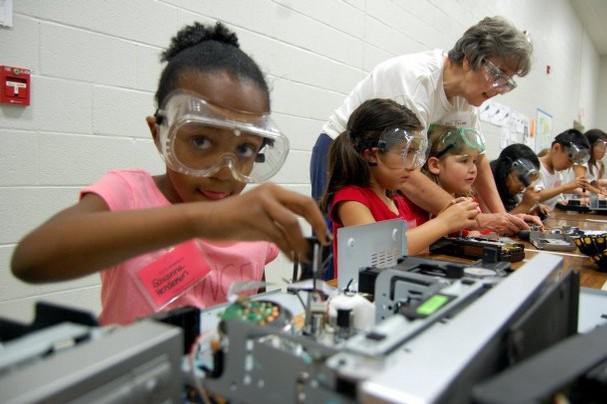
And if you can put a question, the answer to which can be obtained by observing the Universe and asking it questions about itself, you can find out not only what we know, but also how we know it. And if we give such an opportunity to someone - we teach how to look for answers to any questions of interest to them - I can not imagine how such training can negatively influence people. And you?
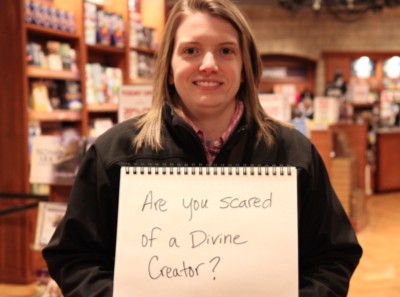
2) Are you afraid of the divine creator?
It is believed that every scientist who does not believe in the divine word of Scripture thinks that science will someday tell a complete and detailed history of the Universe, including every detail of where it came from and why. Let me tell you that it is not. The universe is vast - its radius is about 46 billion light years - and contains at least 200 billion galaxies and about 10 25 planets in the only part that is visible to us. In the universe, there are about 10 91 particles created 13.8 billion years ago. But these numbers, although large, are still finite. And because of this, the amount of information presented in the Universe and accessible to us is finite. Maybe we can extrapolate back to the Big Bang and a little bit further, but the area of the knowable is in principle limited.
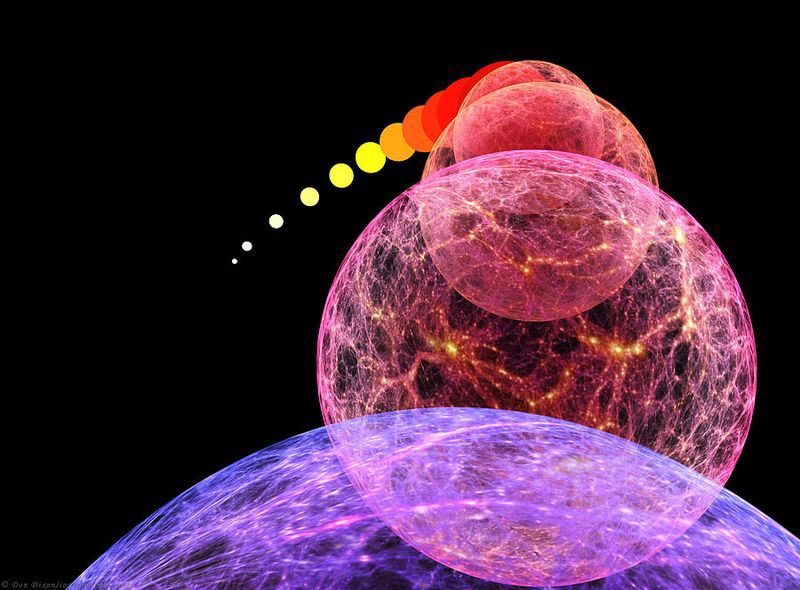
And I understand that I can never exactly know every detail of where the Universe came from and why, and that everything that I cannot exclude, I should take as an opportunity, no matter how much it does not correspond to my feelings. And although my idea of what divine creator could have created the entire Universe, may be very different from yours, I can imagine it. Thoughts about this inspire fear in me and the Greek word δεινός [ominous], describing my feelings, comes to mind.
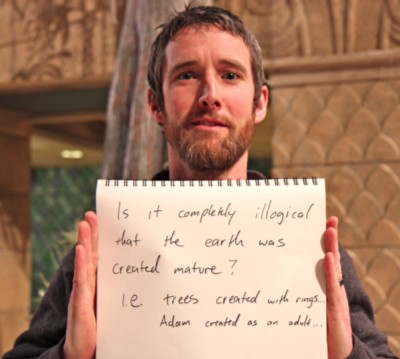
3) Is it absolutely illogical to think that the Earth was created as it is (trees with rings, adult Adam, etc.)
As a child, after reading the book Choose Your Own Adventure [I choose my adventure], I remember that I thought about how the Universe might not be as it seems, and what it could have been made especially for me at the time of my birth. And all the people older than me - parents, grandparents and friends, other relatives - were created with the rest of the Universe on my birthday, with memories, feelings and memories of a past that was not there. I also thought that if it were so, there would have been no way to prove the opposite. But if I had taken such a view of the world, I could not have learned so much of everything.
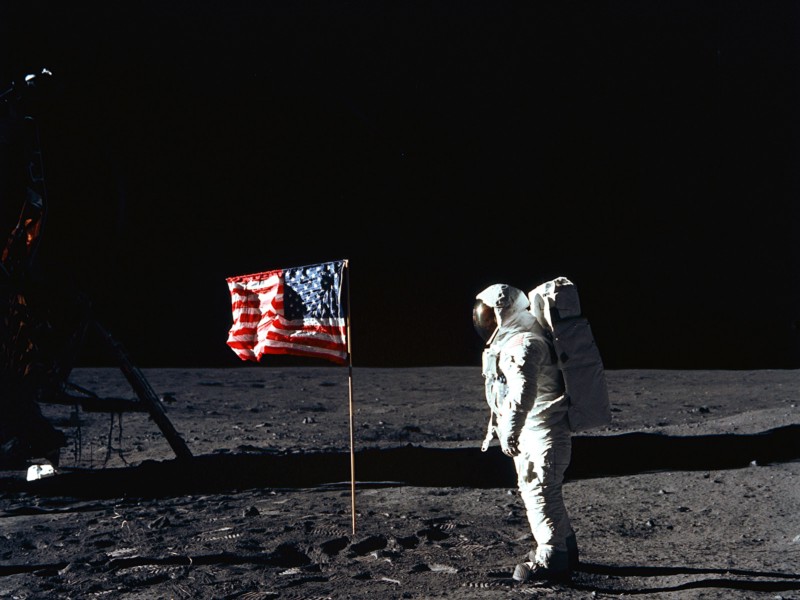
I would not have taught history until 1978, since it would have been fiction for me. I would not teach biology, geology, astronomy, because my view of the world would conflict with evidence obtained from the Universe itself, answering questions. It may not be entirely illogical to assume that the Universe was created in the most interesting place, but this is a very limited view. If the assumption of the age of the Universe at 13.8 billion years contradicted anything that could be observed and confirmed, I would be the first among those who would question our assumptions.
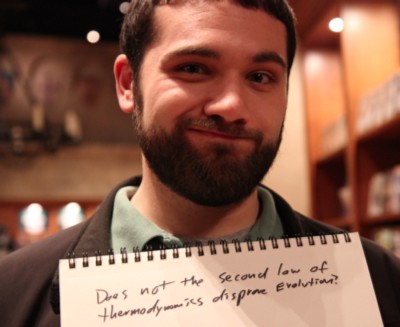
4) Doesn't the second law of thermodynamics disprove evolution?
In short, no. The second law postulates that the entropy (physically measurable quantity) of an isolated system cannot decrease. And I understand that if you look at the total entropy on the surface of the Earth - compared to what was 4.5 billion years ago - it is clear that we are in a state of lower entropy.
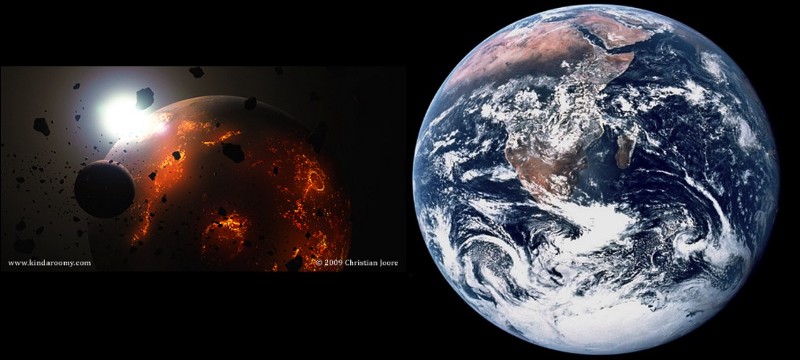
The question is, is the surface of the Earth, the oceans and the atmosphere an isolated system? Since we receive energy from the Sun, from the Earth’s core and a little from outer space from sources outside the Solar System, no. In addition, we still radiate energy outside, into the Universe. Earth is not an isolated system. If this were the case - if we could prevent the absorption or emission of energy or information in the Universe - only then could we apply the second law of thermodynamics to it.
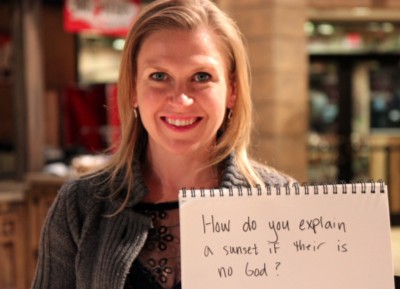
5) How do you explain sunset if there is no god?
I think this is a great question. How can one explain the beauty of sunset without turning to the divine? You and I may have different views on beauty, but you would have to be a man whom I don’t understand at all if you would say that sunset is not related to beauty.

But this is what science can explain, including the variety of colors, gradations, atmospheric effects, and visual illusions. From my point of view, the phenomenon becomes even more beautiful if you find out more about it.
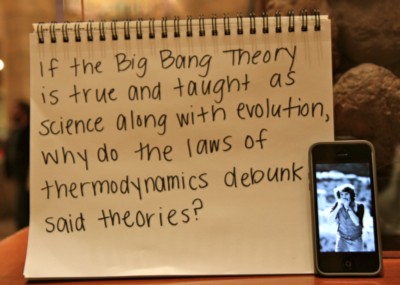
6) If the Big Bang theory is correct and is presented as a science, along with evolution, why do the laws of thermodynamics refute them?
We have already considered the laws of thermodynamics and decided that these laws do not disprove evolution, since the Earth is not an isolated system. But it can be argued that the Universe is such a system. This is the question: did the universe have such a moment from the time when we can first describe it through the Big Bang, when the entropy of the Universe has decreased?
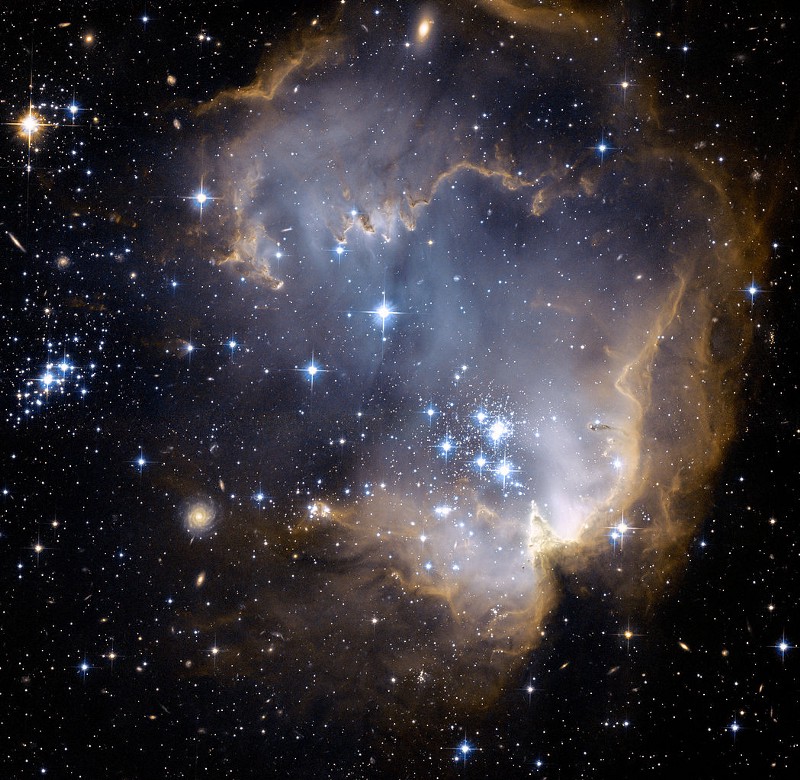
No, it was not. Entropy is always increasing. With each nuclear reaction in the heart of a star, with each gravitational collapse, with the formation or rupture of each chemical bond, if we consider the initial components and the final reaction products, it turns out that the entropy does not just generally grow, but does not decrease for each individual reaction . The laws of thermodynamics do not refute these theories, but instead give predictions and possibilities of testing these theories; and the fact that they pass these checks is a proof of their correctness.

7) What about noetiki?
I admit, I needed to look into the dictionary. I thought that only Aristotle wrote about noetics, but a little research shows that this teaching is about how "beliefs, thoughts, and intentions affect the physical world." An interesting question: Do beliefs, thoughts, and intentions affect the physical world? And if so, how?
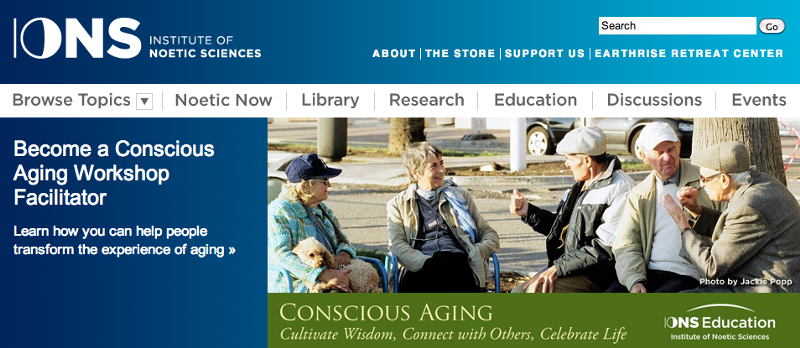
If you want to prove that beliefs, thoughts, and intentions affect the physical world, you only need to demonstrate a repeatable, quantifiable, and measurable experiment with this effect. You do not even need to explain how this happens - you just need to show that there is an effect that can be quantified and measured and that you can repeat it every time you repeat the experiment. At the moment I do not know about the experiments that would demonstrate this, but if you are ready to show them, I will not prejudice.
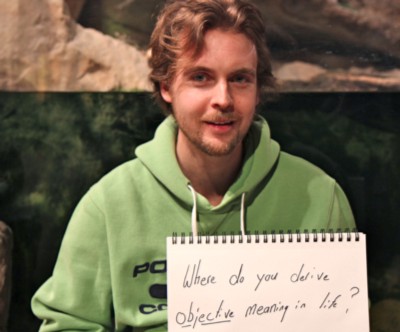
8) Where do you get the objective meaning of life?
Difficult question and the first, the answer to which I do not know. Moreover, I believe that no one knows.
There may be some objective meaning in this life, or it may not exist, and I can believe that it exists, and I can not believe it. But in any case, I cannot define it without being inside my consciousness. How can I, or anyone else, be objective about the meaning of my life if I cannot understand my life without living it. As far as I know, my life had a beginning, now it lasts and at some point it will have an end. I do not think that my life had an objective meaning before I existed, and although I am sure that my existence influenced (and influences) the Universe, I do not know whether this fact is objectively meaningful. I only know that the Universe is different from the one that would have been without me.
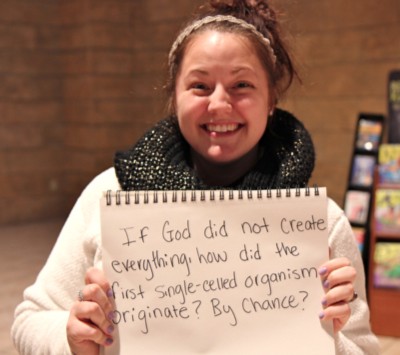
9) If God did not create everything, where did the first single-celled organisms come from? By chance?
I can proudly say that I do not know the answer to this question. So it is - I do not know, but it is possible that someday we will recognize him! You asked one of the greatest questions: how did life appear in this world? And we do not know the answer to it.

But scientists are working on it. We know a lot of things related to this issue, but the biggest question - how we have moved from non-life to life - is still open. I hope to live enough for this riddle to be solved with me - and you?
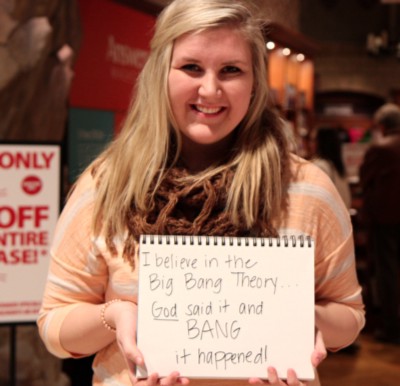
10) I believe in the Big Bang theory. God said and the explosion happened!
One of the beautiful features of our existence is the fact that no one can get into your consciousness and make you believe something against your will. As I wrote in the answer to question number 2, we do not know much about this Universe, and yet we know a lot about the Big Bang.
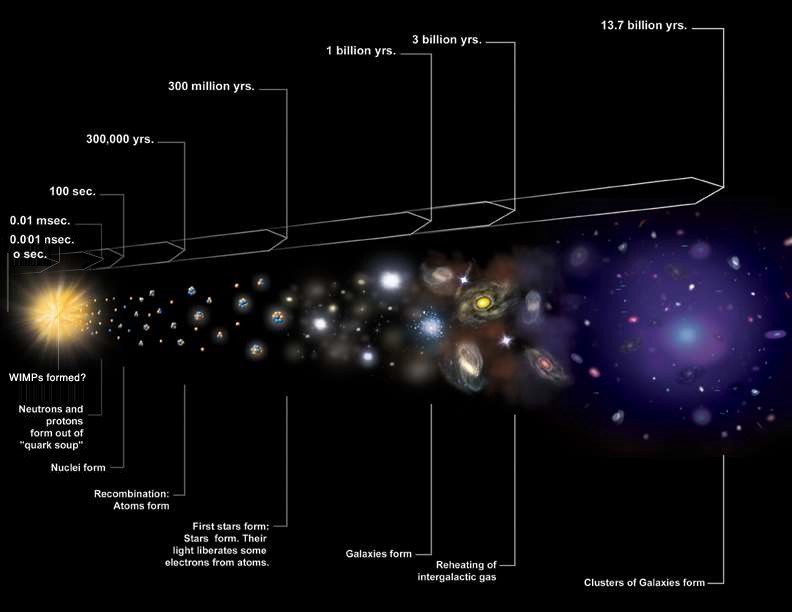
If you are interested in learning about these things, a couple of years ago I wrote the article “The Big Bang for Beginners” and I think this is a great introduction to the question. We think we know what happened before the Big Bang, but we are not sure what happened before. If you think that there is a god because of whom this happened, I have no evidence to the contrary, but I would ask you to ask yourself the question: is this the best explanation given all the evidence? Or can we learn more without making such an assumption?
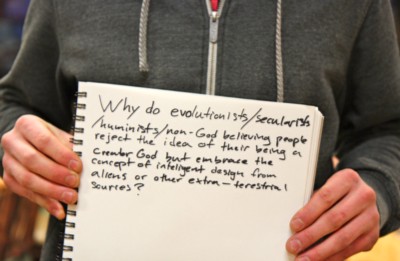
11) Why do evolutionists / atheists / humanists / non-believers in God reject the idea of a creator, but accept the concept that life on Earth originated from extraterrestrial intelligence or other extraterrestrial sources?
Good question. In other words, could life originate somewhere else in the Universe and then get to Earth? The answer, apparently, of course yes. Let me show you a picture of the center of our galaxy in many wavelength ranges filled with atoms and gas ejected by many generations of stars no longer shining in the Universe.
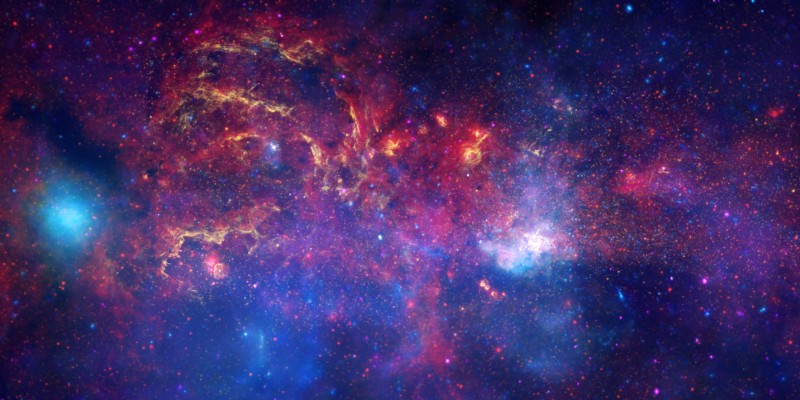
We can find there are many "organic" molecules created in a random and natural way. We find sugars, amino acids, multi-core aromatic hydrocarbons. We find ethyl formate, a molecule that gives raspberry its smell. In short, we find a lot of building blocks of life. If there are trillions of planets in our galaxy, would it not be too restrictive to say that other life forms or other extraterrestrial sources could not exist in the Universe before life appeared on Earth?
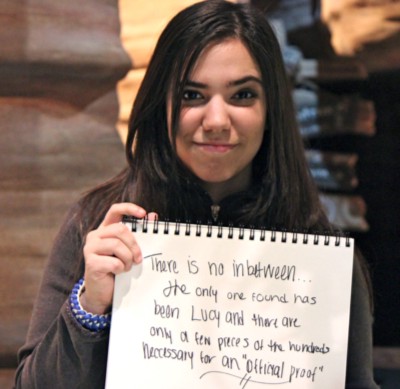
12) There is no intermediate data. Found only Lucy and a few pieces of the hundreds needed for "official proof."
Lucy, if anyone knows, this is a petrified ape-like creature that lived about 3.2 million years ago. Lucy was ranked as a hominid and is a significant find among fossils — a 40% skeleton of a creature closer to humans than any of the monkey relatives, but less close than later evolutionary ancestors.
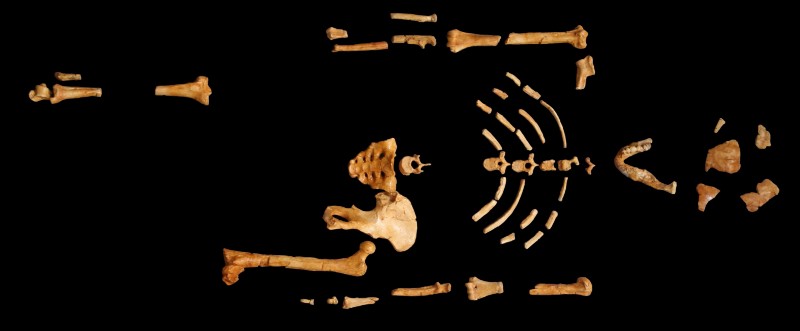
For decades, Lucy was the only representative found of Australopithicus afarensis and the fact that there was at least one fossil remains was considered a lucky find. But in 2000, the Selam skull was found. This is another Australopithicus afarensis that lived 120,000 years before Lucy, but it’s definitely a creature of the same kind. We do not know much - is he an ancestor, or just a “cousin” of a person? But we hope that as new fossil discoveries are made in the future, we can find out!
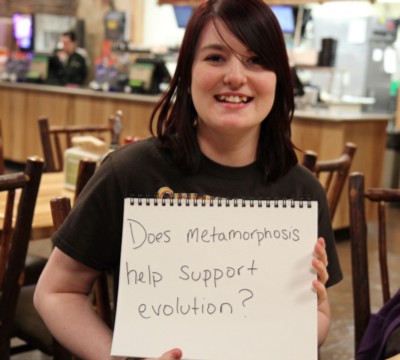
13) Does metamorphosis support evolution?
I know two meanings of the word "metamorphosis" and I do not know what you mean. Stones may experience metamorphosis. Sedimentary rocks are formed in layers, accumulating over time. When creatures are buried in the sediments, they can turn to stone and for quite a long time these stones can undergo a metamorphosis, usually destroying fossils. In this sense, metamorphosis does not help to support evolution - it strongly irritates fossil hunters.
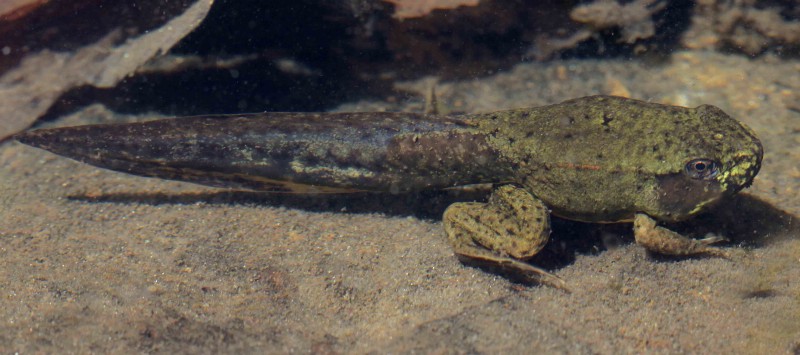
On the other hand, some species pass through different life stages, like tadpoles turning into frogs, caterpillars into butterflies, and larvae into flies. Metamorphosis is the development of an organism and can be easily understood from the point of view of evolution, but evolution did not have to go this way. But there is no contradiction here - all this information is recorded in the DNA of the organism.
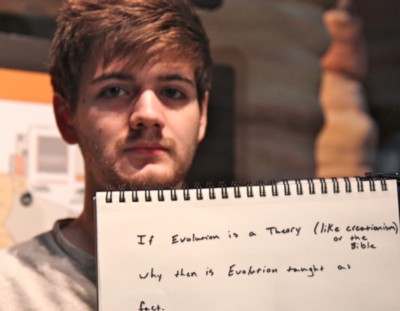
14) If evolution is a theory (like creationism or the bible), why is it taught as a fact?
You ask about the need for evidence for the theory, after which it is recognized as a scientific truth and this is a very important question. I recently wrote about this and, if I may, quote from:
To support your reasoning you need data. You need laws and correlations to build a theory based on them. You need a hypothesis or an idea of how they fit together and how all this can be explained by fairly simple principles. And only when you have enough evidence and enough tests and confirmed predictions, can you justly call your idea a theory.
So, although it is true that lack of evidence is not proof of absence, there is a burden of proof that needs to be fulfilled before we turn an idea or hypothesis into a scientific theory. But when we do this, we will begin to take her predictions very seriously and will be able to expect that there is not only probability, but also the possibility that these new predictions, even those for which no evidence has yet been received, may be correct - despite all their assumptions .
For a detailed answer, I recommend reading the entire article.
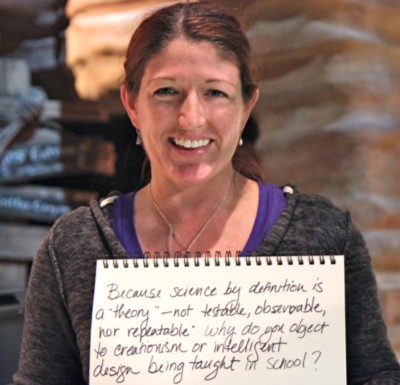
15) Since science by definition is a “theory” - not verifiable, not observable and not repeatable, why do you object to creationism or intelligent design to be taught in schools?
Allow me to clarify: I believe that creationism or a rational design can be taught along with literature, politics or sociology, but not with rigorous sciences. Why? Because it is not a scientific theory. Again, I ask you to read this passage, where I explain all this, but let me quote the other part:
Scientific laws tell you what will happen under certain conditions, but they have not yet reached the state of scientific theory. Scientific theory is an even more advanced thing than laws: it postulates an explanation and mechanism from which these laws are derived. Here is the power of science.
With the change of generations, living organisms give rise to the next generation of living organisms - this is data.
The following organisms are measurably different from their predecessors - this is the scientific law of evolution.
The mechanism behind this is that organisms have information about their properties, encoded in their DNA, that DNA mutates, and, in the case of sexual reproduction, combines the DNA of their parents to create offspring DNA and that the least adapted organisms die out - this is scientific theory.
Scientific theories are the most profound and powerful explanations of how scientific progress occurs. Transmission of diseases by microorganisms is a theory; biological evolution is a theory; the atomic theory of matter is the theory and the theory of gravity is the theory.
Hope this helps.
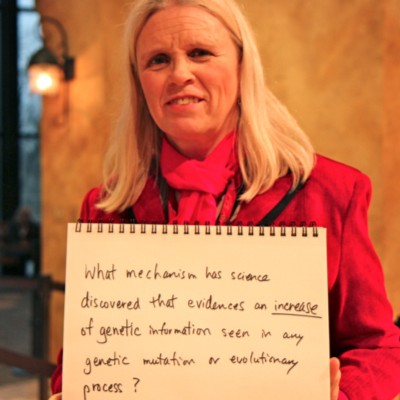
16) What mechanism discovered by science proves an increase in genetic information that can be observed with each mutation or in the process of evolution?
If you have ever made a copy of a document, you have noticed some imperfections in the copy compared to the original. And if you make a copy of a copy? Is the quality deteriorating? Worsening, and this is something that can not be avoided with any technology of non-ideal copying, from JPEG to DNA.

Most of the time, genetic mutations have negative or neutral consequences. Sometimes they are good. But if you get a mutation in which a genetic code arises that did not exist before, this increase in genetic information! Genetic mutation is one of two key ingredients (along with selection) necessary for evolution. If you have them, then evolution is inevitable!

17) What is the purpose of your being here if you do not believe in salvation?
I promised to answer questions honestly and in this case it means that I will give you an answer that you cannot apply to yourself. I believe that the purpose of my existence is to increase the knowledge, understanding and awareness of the world around us and the amount of kindness in it. I do not know whether this is a worthy goal for existence, or whether it was a divine being who sought it - if it exists and if it had a goal for me - but I chose this goal for myself. If at the end of my life I discover that there is some form of salvation, I may deserve it by living in the best possible way. If not, then I lived, observing the loyalty of my chosen goal.
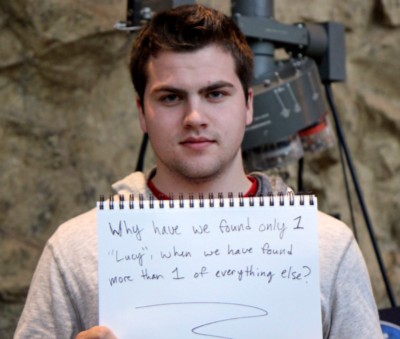
18) Why did we find only one “Lucy” if we found more than the rest of the rest?
We haven't met, but I'm Ethan Siegel. There are many other people with that name, but only one of them is me. And whoever she (or he) was, Lucy was only one. But regarding Australopithicus afarensis, there are at least nine of the fossils of these creatures that have survived. In 2011, new evidence was discovered, showing that the bones of the legs of these creatures are more human than our thoughts and that they were almost certainly straight erect. There is only one Lucy, but a lot of Australopithicus afarenses and I hope that as a result of the excavation they will become even more!
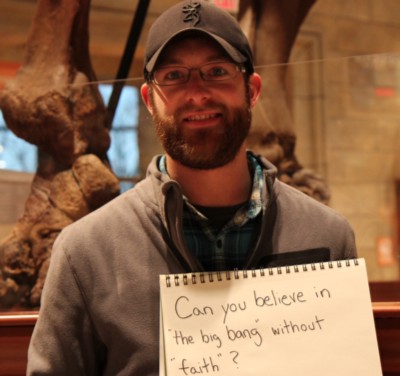
19) Is it possible to believe in the “big bang” without “faith”?
Sure, I can believe, and believe in different things. I take some things on trust, for example, I believe that scientists before me scrupulously checked the data. And that they reported their results without error. That the people repeating and checking their work subjected it to scientifically scrutiny. And that the conclusions that we draw from this set of evidence will continue to give their predictions, based on experiments and observations.
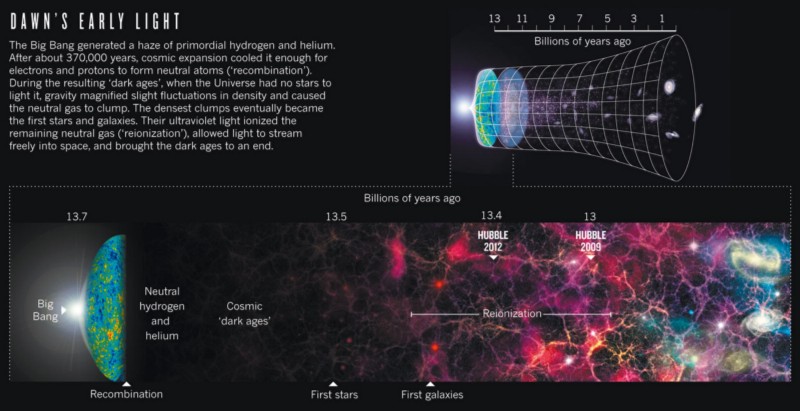
But if not, I am ready to change my conclusions. If genuine evidence appeared that contradicted the Big Bang, if he no longer described the Universe with accuracy, I would stop believing in it. You can believe on the basis of evidence and allow some uncertainty in your beliefs, and I can accurately describe what evidence would change my point of view. I like to think that I "believe" in all the conclusions of science without attracting "faith" from the point of view of religion.
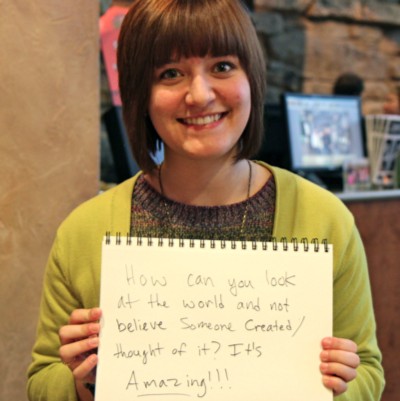
20) How can you look at the world and not believe that someone created it or conceived it? He is awesome!
I am sure that he is amazing, I will not argue with you here. The bottom line is that there are so many amazing things and I would not like to exclude the beauties of all other worlds, solar systems and other life forms existing in the Universe. I don’t know exactly where all this came from, before the Big Bang, before cosmic inflation, but when I look at the amazing Universe in which we live, that’s what I’m thinking about.
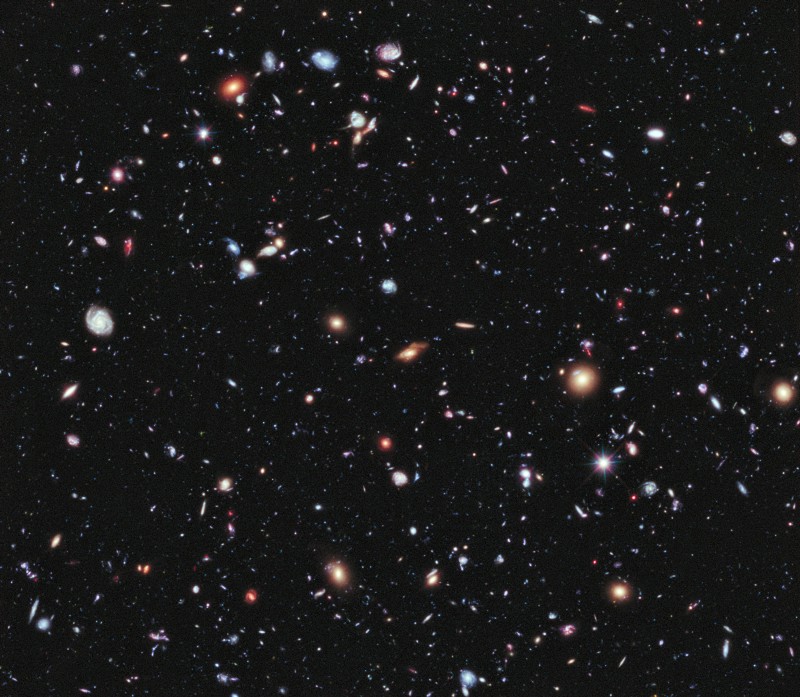
I think about the billions of billions of galaxies and the trillions of worlds that exist in each. I think about the uniqueness and diversity of each of them, and I wonder how many of them have life, and is there still a reasonable life like ours? I wonder if anyone out there thinks about us? I wonder if it will ever happen that two lonely intelligent creatures cross interstellar distances and find each other. I do not know whether this was intended to be so, or not, and I don’t know how to find out. But I know that while I am here, I want to know as much as possible of what is possible to know. I would even say that this is our common aspiration.
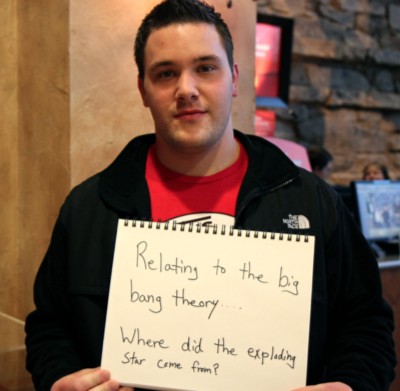
21) Regarding the big bang theory ... Where did the exploding star come from?
Hearing the word "explosion", it is natural to think about the explosion, is not it? But the Big Bang is not a blast. This is one of the most common misconceptions.There was no primordial star that exploded, there was only the rapid expansion of space and the rapid cooling of all matter and energy. Here there are some explanations, but I can offer such an image as more accurate.
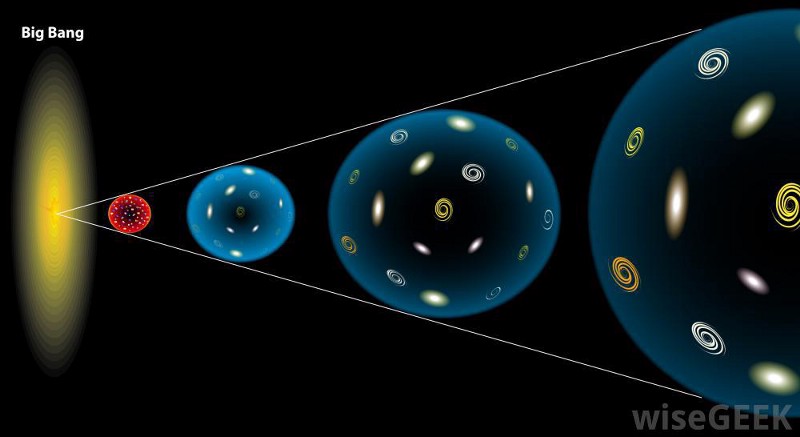
And only many millions of years after the Big Bang, the first stars formed, and this was due to the gravitational collapse of matter left after the Big Bang. And after the most massive of them exploded, heavy elements filled the Universe. After many generations of stars who have lived and died in this way, enough material has accumulated for the appearance of stony planets, complex molecules and, as a result, life, as we know it.
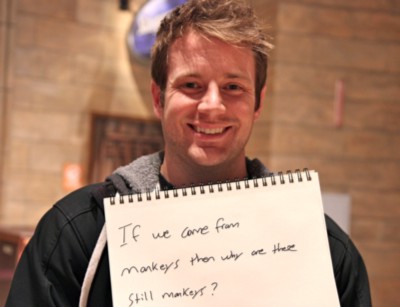
22) If we are descended from monkeys, why do monkeys still exist?
This is one of the most common questions about evolution that I have seen. You can think of evolution as an image in which unicellular organisms turned into jellyfish, then arthropods, amphibians, reptiles, mammals, primates, and finally us. This is approximately the case, but it would be more correct to say that unicellular organisms led to the emergence of diverse descendants, some of which were unicellular and some of which were multicellular. Jellyfish originated from some multicellular organisms, and vertebrates originated from others. Amphibians and so on originated from some vertebrates. Evolution is not a linear development, but a complex structure with many branches.
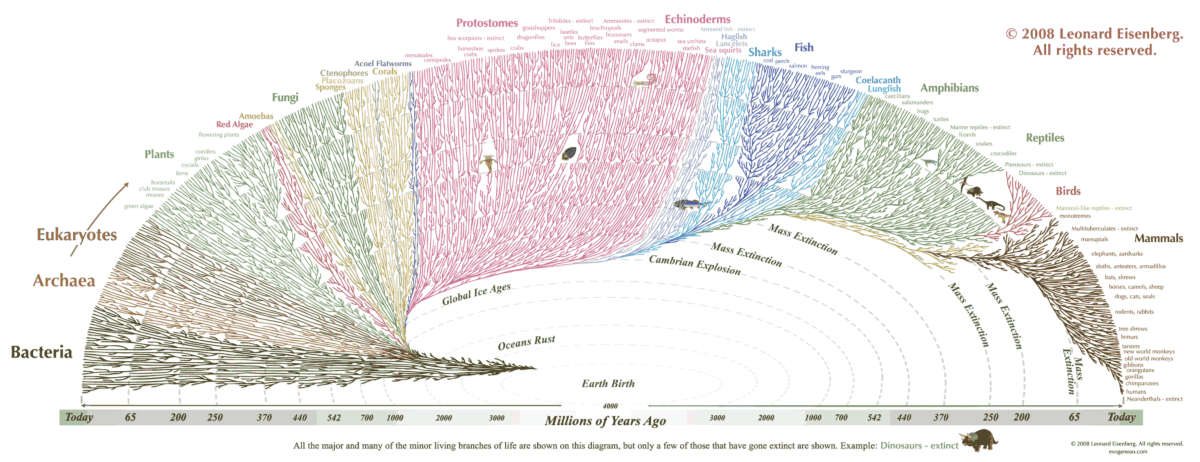
Monkeys that existed millions of years ago evolved in both modern monkeys and apes, while apes that lived a few million years ago evolved in both modern large apes and, recently, from an evolutionary point of view, into modern humans.
Source: https://habr.com/ru/post/396437/
All Articles